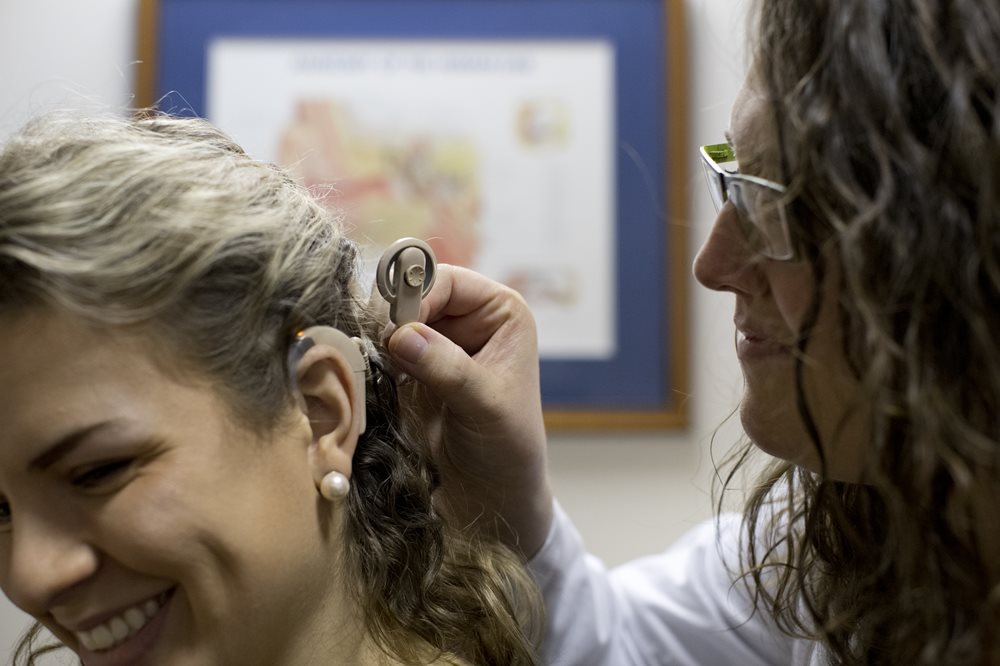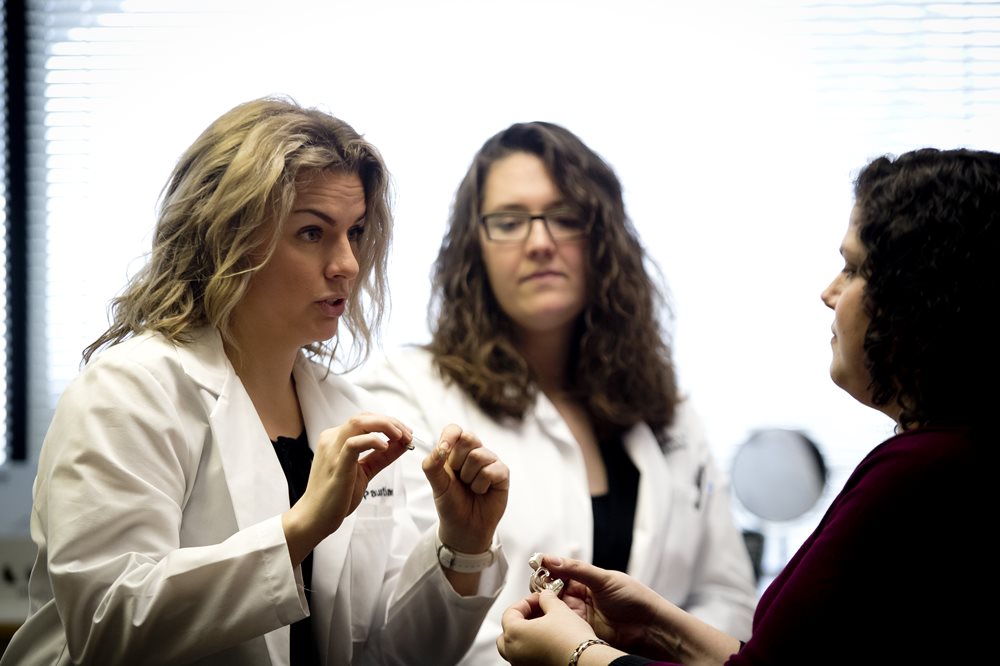Student’s Hearing Loss Journey Leads to Audiology Career
 With an infectious personality, fierce determination and a zest for life, Dayle Paustian is not one to let an obstacle stand in her way. She is using her personal experience with hearing loss to fuel her passion to become an audiologist.
With an infectious personality, fierce determination and a zest for life, Dayle Paustian is not one to let an obstacle stand in her way. She is using her personal experience with hearing loss to fuel her passion to become an audiologist.
Paustian is an audiology student assigned to her clinical rotation at the Pennsylvania Ear Institute (PEI) but her hearing loss journey began at birth. Despite being born deaf, she says it took a few years to receive an official diagnosis.
“I wasn’t diagnosed until I was about three. At the time, newborn hearing screenings weren’t mandated whereas now that would be the first indication for parents that something could be wrong,” said Paustian.
At the age of three Paustian was diagnosed with profound hearing loss in both ears and fitted with her first pair of hearing aids.
Hearing aids help amplify sound from the surrounding environment, directing it through to the inner ear which in turns sends a signal to the brain. With profound hearing loss, the inner ear is so compromised that amplification using hearing aids is of limited use.
“My mom was introduced to the idea of a cochlear implant which is basically a surgical prosthesis in the inner ear,” said Paustian. “I got a cochlear implant in my right ear at age seven then my left ear when I was 14.”
Different from hearing aids, cochlear implants bypass damaged portions of the ear and directly stimulate the auditory nerve. The implant then sends signals to the brain to pick up the sound.
“With the cochlear implants, I was finally able to get a great quality of sound - it’s improved my speech and has helped me a lot with my education,” Paustian said.
 Her personal experience with hearing loss eventually led to her future career pursuit. Once a patient herself, Paustian – a second year student in Salus University Osborne College of Audiology – is now working to become a doctor.
Her personal experience with hearing loss eventually led to her future career pursuit. Once a patient herself, Paustian – a second year student in Salus University Osborne College of Audiology – is now working to become a doctor.
“I was exposed to the field of audiology from my personal experience but now I’m gaining clinical skills and a scientific understanding of how it all works together,” she said.
During clinical rotation at PEI, she has the opportunity to work with patients of all ages and with varying degrees of hearing loss. While she hasn’t officially decided on a specialty, Paustian feels most connected with the pediatric population.
“As healthcare professionals, we strive to be empathetic and personally I know firsthand what it’s like. When I have the chance, I visit my speech school back home to talk to the children and their parents,” said Paustian. “They look at me and have hope. They can see that being deaf does not have to limit them from accomplishing their goals.”